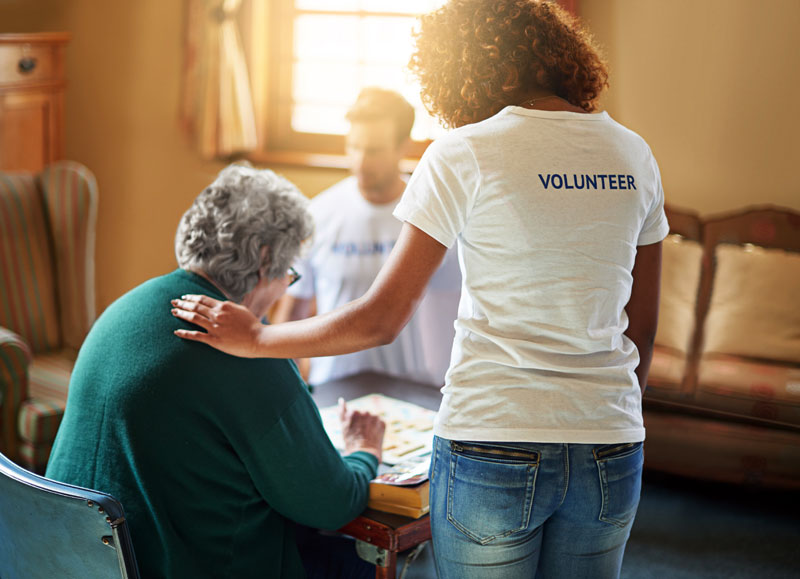Volunteering to be a hospice care worker is one of the most compassionate ways to help others, but many people aren’t sure exactly what is involved in providing hospice care. There may be misconceptions about the responsibilities and tasks of the volunteer in a hospice setting. But volunteers are an essential part of every hospice care team. In fact, hospice service was originally started by volunteers and now requires patients to have access to volunteers as part of the treatment plan.
Hospice care plays a vital role in supporting individuals and their families during one of life’s most challenging periods. However, misconceptions about hospice care often lead to misunderstandings and hesitations. In this article, we’ll debunk some common myths surrounding hospice care to provide clarity about the valuable services it offers.
Most people who have experienced the gradual loss of a loved one are familiar with hospice services. Today, hospices are considered the model for quality, compassionate care for life-limiting illnesses. But hospice care wasn’t always available to patients who needed it. Learn about the origins of hospice as we know it today with this brief history of hospice care.
During hospice care, the end-of-life process can have a profound impact on the lives of all those involved. Social workers bring particular skills to the caregiving team, including working with families from varying cultures and socio-economic status. Their training helps them relate to people within a social and cultural context. The social worker can also identify resources, beyond the health care system, which may help the family cope with situations involving life-limiting illness, dying, grief and bereavement.
When grieving the loss of a friend or family member who has been under hospice care, it helps knowing that their last days were made as comfortable and as pain-free as possible. Opting for hospice care means that the patient and family probably had some time to make end-of-life preparations. Nevertheless, when the moment arrives, we may find it challenging to fully cope with our own sorrow and the grief experienced by those around us.
Hospice care is a type of specialized medical care that is focused on providing comfort and support to patients with a terminal illness or condition. The goal of hospice care is to improve the quality of life for patients and their families by managing symptoms, relieving pain, and addressing emotional and spiritual needs.
CNAs (Certified Nursing Assistants), also referred to as Home Health Aides, have been called the unsung heroes of hospice care. Their role, as part of the hospice team, is crucial. Under the supervision of a RN (Registered Nurse), CNAs and Home Health Aides provide daily care to enhance a patient’s daily life, wellness and dignity – which includes essential and basic tasks, such as:
While many hospice professionals focus on patients’ physical and psychological needs, spiritual care often rests with a highly skilled and compassionate member of the caregiving team: The chaplain.
As a hospice nurse, you know that you have a challenging and rewarding job. Helping people with quality care in the final stages of life is among the most important jobs of all. Not only can you support the person in need of care, but you can also provide comfort and happiness to friends and family members.
In hospice care, patients and their loves ones are often aware the end is near, but it does not make it any less difficult for family members to accept. Many friends and family, even nurses and caregivers, are afraid of saying the wrong thing. They do not want to make a bad impression or seem insensitive. However, the most important thing to remember is to be yourself. The end may be near, so now is the time to show how much you care.










